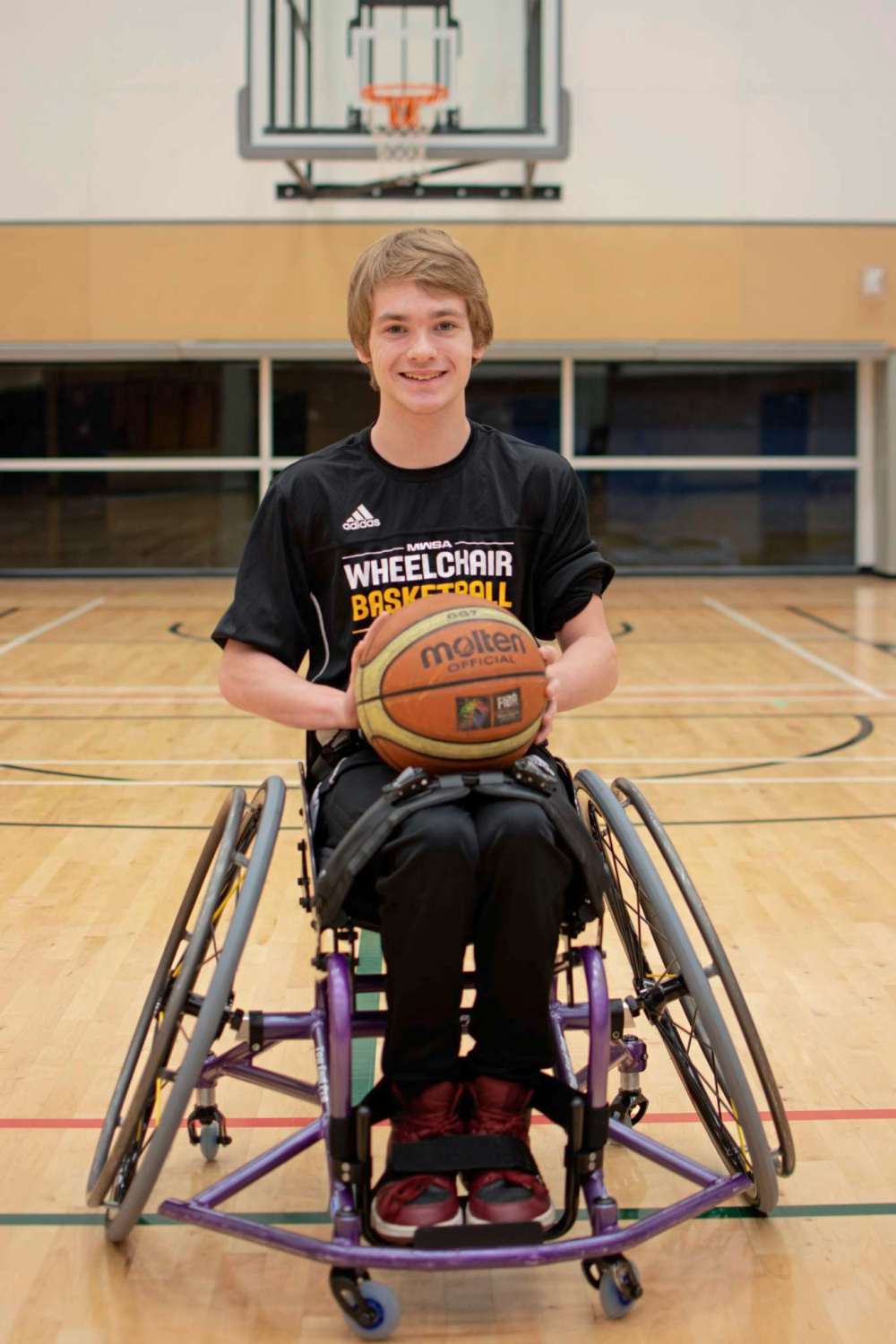Wheelchair athlete named Canada Games torchbearer
Advertisement
Hey there, time traveller!
This article was published 29/10/2018 (2635 days ago), so information in it may no longer be current.
Rylan Bileski’s life changed when he started playing wheelchair basketball two years ago.

“I never really cared for sports because I could never get into them, I couldn’t really play at the same level as everyone else so I was discouraged to play,” said the 14-year-old Westwood Collegiate student.
Bileski lives with cerebral palsy and got his first taste of adaptive sports at a summer camp that offered wheelchair track, tennis and basketball.
“I guess I was told I was just a natural at it and it was fun,” he said of the latter.
Today, Bileski is playing competitively with the Manitoba Wheelchair Sport Association’s provincial basketball team and was recently selected to be a torchbearer for the 2019 Canada Winter Games. He is one of 100 Canadians taking part in the country-wide torch relay that will come through Winnipeg on Nov. 1.
“It’s a big honour for Rylan to be selected,” MWSA basketball head coach Jarrett Yaworski said. “It’s an opportunity not a lot of athletes get.”
Bileski says that while it’s exciting to be named a torchbearer, he’s more focused on competing in the games in Red Deer, Alta., next February. The event will be his second time playing in a national tournament.
“I feel like we should do better this year because we’re more prepared and have a better idea of what’s going on at the higher levels,” Bileski said.
Yaworski agrees and said the goal is to “compete with some provinces and do our best to achieve at a level that’s going to put a smile on our faces.”
Team Manitoba is facing stiff competition as one of the youngest teams in the tournament, which is open to players 24 years and younger. While that means the teens will be going up against adult players, their sport has rules aimed at evening out the playing field.
In wheelchair basketball, athletes are assigned a number from 0.5 to 4.5 based on their ability and teams can’t have more than 14 points on the court at a time. Aside from the point system, the sport uses the same court dimensions and net height as stand-up basketball.
Yaworski has been working with Bileski for the last two years and says the young point guard’s dedication has been a boon for the provincial team.
“Rylan is a very dedicated athlete who puts in the time to hone his craft,” he said, adding that his training started with movement fundamentals. “It takes a longer time for someone late in life to develop those early physical literacy pieces — to be able to catch, to throw, to shoot and to move his chair.”
In addition to the physical development, Bileski’s father Dave says he has watched his son’s attitude change on the court.
“There’s a competitiveness that comes out in him that you would never see,” he said. “His character is pretty laid back and once he got into that environment… his competitiveness went through the roof.”
Bileski’s favourite part of playing wheelchair basketball, however, hasn’t been about the sport at all.
“It’s about the community and the people and being able to socialize and have people who at least somewhat know what you’re going through,” he said. “It makes it more fun, more relatable.”
The MWSA offers basketball, tennis and rugby programming for wheelchair athletes of all ages and skill levels. Visit mwsa.ca for more information.



